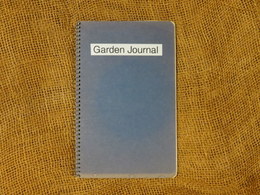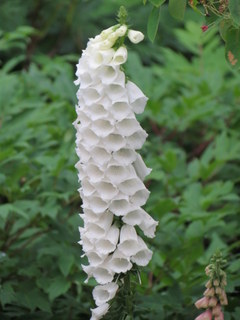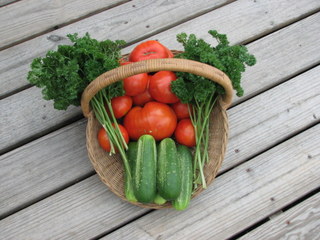Welcome to Garden Spikes
Timely Garden Tips
Timely Garden Tips
Go through last year’s garden journal. What were your success and failures? Each year the weather is a bit different and what is favorable to one plant is often unfavorable to another. Was the weather cooler or warmer, more humid, or less humid? Do not be discouraged, the normal weather variations are a part of nature that makes things interesting.
If you do not have a garden journal, start a garden journal now making note of the first frost this past fall and then the last frost this spring. To be a successful gardener you need to keep good garden records. These records will be invaluable next winter or early spring when you start planning your next garden.
Think about what you might want to do this spring. Did your yellow squash, zucchini, acorn squash or butternut squash over run some other parts of your garden? If possible, expand your garden to give them the room they need to grow or plant in another location.
Cucumbers and beans are long vining plants that can take over your garden. Consider growing the cucumbers and beans on a trellis this year. Planted about a foot apart, 4-cucumber plants will nicely fill and climb a 6-foot to 7-foot-high trellis. Plant them on the north side so that they do not shade your other low growing plants. The cucumbers and beans will be easier to find and pick because you can easily see both sides of the vine.
Determinate tomatoes, peppers, parsley and other herbs can be planted in front.
The big box stores, supermarkets and hardware stores are now getting in the seed packages and seed starting supplies. The selection is great and now is the time to get the seeds and other supplies you will need. Do not wait until the last minute or you may find that many varieties are sold out.
Lettuce, beets, broccoli, carrots, cabbage, collards, kale, radish, spinach, Swiss chard and other fall vegetable seeds you may be planting in August, should also be purchased now. If you wait until then, you might have a difficult time finding the seeds you may want.
Many houseplants suffer on cold winter nights. Move them back away from cold windows and cold drafts.
Poinsettia and amaryllis plants can be kept looking their best by exposing them to at least 4-hours of direct sunlight every day. The soil should be kept moist. Give them enough water so that the excess drains out of the bottom into the saucer. Pour off the excess from the saucer after a few hours. Leaving the water can lead to root rot. Room temperatures of 65 to 75-degrees during the day and 55 to 65-degrees at night will keep them looking good.
Timely Quote:
“Anyone who thinks gardening begins in the spring and ends in the fall is missing the best part of the whole year; for gardening begins in January with the dream.”
- Josephine Nuese
Successful gardeners use the principle of working with nature to practice the easy, economical and environmental methods that can make gardening relaxing and rewarding.
Flowers that grow on spikes are a favorite among many gardeners. Coleus, foxglove, gladiolus, hyacinth, lavender, obedient plant, orchid and salvia are some common flowers that grow on spikes.
Are You a Gardener?
Many people do not think of themselves as gardeners. If you have a lawn, a few houseplants or grow some flowers and vegetables, you are a gardener.
It can range from beautifying your home to providing wholesome organic food for your family.
Gardening Can Be Easy and Relaxing
You might have just a few houseplants in containers on a window, patio or deck.
If you have more space it might be a small flower bed or a larger area to attract butterflies, hummingbirds and honey bees.
Some will concentrate on roses of every color and type. Others search for as many different varieties of flowers that they can find.
If you have a sunny location it could also be a few tomato plants in containers or a large area for vegetables and herbs that will feed the entire family with enough to preserve for the winter.
Keep It Simple
If you are new to gardening the secret is to keep it easy and start small. Each year you can expand your garden a little more. Your native soil may be very sandy or it may be heavy clay with a lot of rocks. For plants to grow properly you will need good garden soil by adding organic material to the native soil.
One year you may plant some flowers or shrubs along the front of your home. The next year add a flower bed along the driveway. And the year after that a flower bed around your mailbox or the tree in the front yard.
A vegetable garden works the same way. Plant what your family likes to eat. You may start with 100-square feet and plant half of it with tomatoes and the rest with lettuce, Swiss chard, parsley, dill and basil. These will supply you with fresh vegetables and herbs continuously during the summer.
Next year as you improve the soil you can expand your vegetable garden to include peas, beans, carrots, beets, zucchini, cucumbers, etc. By growing your own food you can be assured that your food is truly organic and free of pesticides.
It does not have to be a big project if you break it down into smaller easy to do steps. If you spend 10 or 15-minutes each day or every other day it never gets ahead of you.
Environment
Composting your yard and kitchen waste is also one small step. Composting is environmentally friendly and you will keep from adding to the landfills. Adding finished compost will also improve your soil and fertilize it at the same time. It is nature’s way of recycling.
Mulching around your plants with leaves collected in the fall will improve the soil and at the same time make your flower garden and vegetable garden almost entirely weed free.
Gardening Thought
“Earth is here so kind
That just tickle her
With a hoe and she
Laughs with a harvest”
- Douglas William Jerrold (1803-1857)
Garden Spikes newsletters give you timely information once or twice a month. Subscribe Free to the Garden Times newsletter below.
Your email address will only be used to send you a newsletter and will never be sold. You can unsubscribe at any time.



